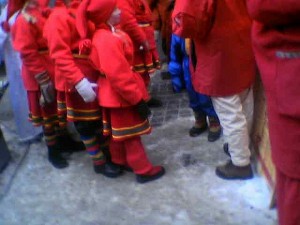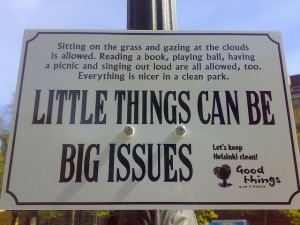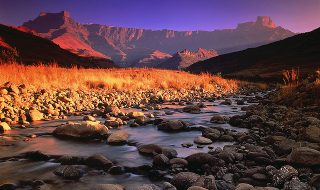
My husband lived in Finland for two years before he met me. I love listening to his stories of the cold, the beauty, the fun he had and the wildlife (including wolves) he saw. Finland is called the Land of a Thousand Lakes. Sometimes I imagine what it would be like to grow up in Finland.
 Finnish people call Finland “Suomi” and Finnish (suomalainen) is the main language, with many also speaking English. 6% of the country speaks Swedish. Children start to learn English at the age of 9.
Finnish people call Finland “Suomi” and Finnish (suomalainen) is the main language, with many also speaking English. 6% of the country speaks Swedish. Children start to learn English at the age of 9.
Finland has a special Ombudsman for Children in their government. Their job is to listen to the views of children and make sure that the rights of children are not ignored and are recognised and supported.
Since 1938, when a child is born in Finland, the parent or guardian is given a box from the government. This box contains clothes, food, blankets, toiletries, books and other essential items and shows how important children are in Finland.
The average day in the life of a Finnish child is similar to yours. It gets very cold in winter (which is long, lasting from November to April), sometimes reaching -30 degrees centigrade. Your fridge will be about 1 degree centigrade, so that is cold! However, the summers are about the same as a warm summer day in the UK, although only last for two months. In the north of Finland there is no daylight at all in deepest winter and no night-time in highest summer.
School in Finland is free and all pupils get free school dinners. The day lasts from 8 or 9 am until 1 or 2 pm and you start at seven years old. Before that, children go to day nursery or kindergarten but don’t have any formal lessons. There are also free day-care centres for all children from eight months to five years old. It is important for Finnish people that children have a chance to play and learn through fun before beginning formal lessons at school.
Children can leave school at 15, but many go on to what is called ‘upper secondary’ education. This lasts until about the age of 19 and is similar to sixth form colleges in the UK or the final two years of high school in the US. Pupils can study academic lessons or do vocational work, which means they can learn how to do a particular job they might be interested in such as nursing or mechanics. Pupils can then choose to go to university or go on to the workplace.
 Finnish children play just like you do but some of their games are a little different. For example, in Crab Ball Tag all the children except one who is ‘tag’ must form a ‘crab’ by raising themselves up on their hands and feet with their stomachs facing up. ‘Tag’ then pushes a ball to the crabs who must try to hit ‘tag’ with it by kicking or pushing. ‘Tag’ can pick up the ball and tag crab. The crab then becomes ‘tag’.
Finnish children play just like you do but some of their games are a little different. For example, in Crab Ball Tag all the children except one who is ‘tag’ must form a ‘crab’ by raising themselves up on their hands and feet with their stomachs facing up. ‘Tag’ then pushes a ball to the crabs who must try to hit ‘tag’ with it by kicking or pushing. ‘Tag’ can pick up the ball and tag crab. The crab then becomes ‘tag’.
Some games are very different. Chain (Ketju) involves all but one players joining hands in a circle which then must tangle itself in a knot, with one person leading the circle and one player leaving the room whilst this is done. The one player left out then comes back to untangle the circle, who must stay linked. It is very chaotic!
Sports are very popular, such as football and swimming. Because there is a lot of snow in winter, skiing, ice-hockey and ice-skating are very popular. The national sports are skiing and rallying. A quarter of all Finnish people love to go camping regularly. It is so important there is a law that Finnish people must have access to camping sites!
Children also play computers games and go online in the same way we do. Girls in particular also take up hobbies such as art or reading, more so than boys do which is probably quite similar to the UK also!
The weather may be colder, the school days shorter and some of the games may be different but it seems that the lives of Finnish children are very similar to yours.
Tina Price-Johnson is a Paralegal and Litigation Assistant by day, and Freelance Writer/Poet by night and weekend. She loves history, social studies and biographies, and enjoys writing about almost anything. She lives in London and travels in the UK and abroad whenever she can, and can usually be found wandering around crumbling ruins, wherever they may be.



